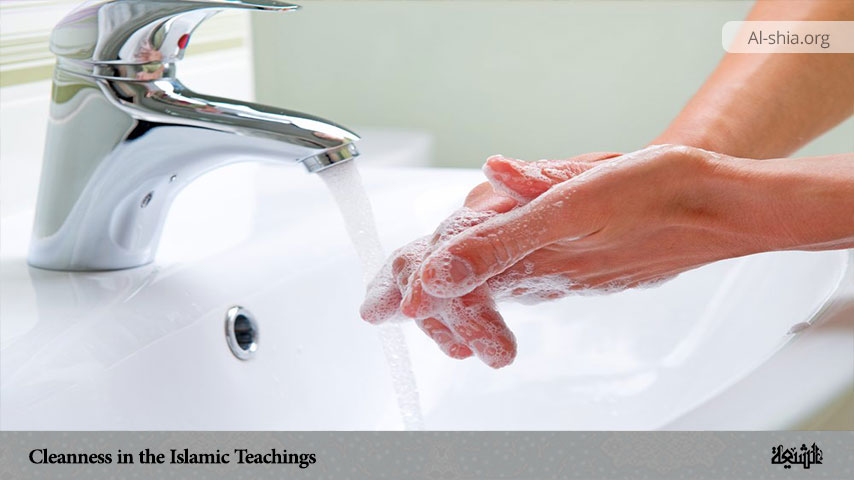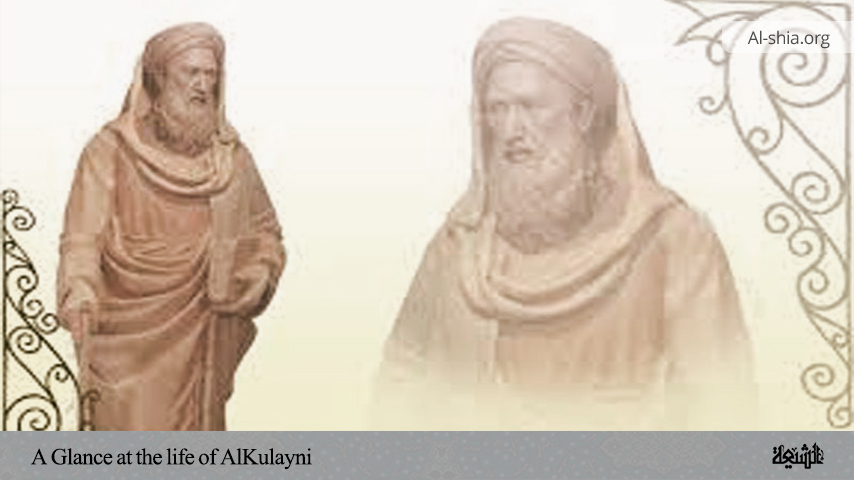islam is a complete way of life, which deals extensively with both the spiritual, as well as the physical well-being of its adherents. In the same way, great emphasis has been placed on the spiritual needs of man, his/her physical and material needs are as well not being underrated. Cleanness is among the crucial manners in Islamic teachings. Islam pays much attention to the cleanliness of the body, clothes and houses. It also recommends brushing one’s teeth, styling one’s hair, trimming one’s nails, and taking care of the surroundings. Rather one may not be a true Muslim unless he/she fulfils the afore-mentioned acts[1]. Hence, it is not permissible for any Muslim to contaminate the environment, neglect their own cleanliness and tidiness, or hurt their fellows through their displeasing looks or stinking scent. In a nutshell, cleanliness is one of the great privileges in Islam.
Significance of Cleanliness
Cleanliness and purification are an essential part of Islamic life and in fact, the philosophy behind the concept of cleanliness in Islam is much beyond the superficial concept of conventional cleanliness. In the glorious Qur’an, while discussing menstruating women and the need to clean themselves after its completion, Allah says: “…Indeed Allah loves the penitent and He loves those who keep clean[2].”
Similarly, from the divine injunctions given to the Messenger of God (peace be upon him and his household) following his appointment as a divine Prophet was the purification of his garments and avoidance of every impurity: “And purify your clothes, and keep away from all impurity[3]“
While explaining the verse, Ayatollah Faqih Imani writes: “The word “clothes” may herein serve as a metaphor for human deeds, since the deeds are likened to clothes as the outward appearance reflects the inward beliefs and feelings. Some also maintain that the word “clothes” herein indicates heart and soul, namely purify your heart from impurities. Where the clothes are supposed to be cleansed, the one who wears them is accorded precedence. Some have also held that the word denotes the outward clothes since their purity constitutes the most significant token of character, education, and culture. Pre-Islamic Arabs hardly accorded attention to keeping away from impurities and their clothes were generally unclean. It was quite common, as in the case of those entangled in the age of ignorance, to wear quite long garments, such that their garments were soiled out of being dragged while they walked[4].”
The Holy Prophet (PBUHH) and the infallible leaders (PBUH) have instructed the Muslims to maintain cleanliness and at the same time, they have seriously frowned at dirtiness and untidiness. In fact, God Himself is pure and hates dirty and untidy persons: “Surely God is pure and loves what is pure, clean and loves what is clean”,
The Prophet (PBUH) was reported to have said: “Verily, Islam is [the religion of] cleanliness, so cleanse yourselves. For surely, only the cleanly enter Paradise[5].”
In another narration, for God has grounded Islam on cleanliness, and no one will enter Paradise except for clean people: he (PBUH) also said: “Observe cleanliness in every respect you are capable, for indeed God based Islam on cleanliness; and only the cleanly enter Paradise[6].”
In light of these above-quoted texts, it is obvious that all Muslims are required to pay much heed to cleanliness, especially with respect to their ritual practices such as the minor ablution, tayyamum [dry ablution] and major ablution as explained in the jurisprudential books. For one’s acts of worship will not be accepted unless these ritual actions are performed in their correct manner.
Physical Cleanliness
In Islam, physical cleanliness is considered desirable at all times, from birth to death. However, in some cases, certain aspects of it are not only desirable but also compulsory.
When a child is born, Islam enjoins the Muslims to maintain a high level of cleanliness and purity concerning him/her, as this has an impact on the mind and soul of that child. If the parents neglect this duty, they should answer before God for the consequences. Similarly, circumcision of the male child-preferably on the seventh day- is a mandatory Islamic custom. “This is very important for the health and hygiene of the child. This prevents the child against the possible infection of the male genital organ[7].” At death, due to the importance attached to cleanliness and purity, it is mandatory to perform full body washing ablution (Ghusl) for the dead body of a Muslim.
In addition, ablution (Wudu) and body purity are considered very crucial conditions for the validity of prayer (Salat), which is the most significant act of worship in Islam. In fact, in a normal circumstance, a Muslim cannot offer his prayers with an unclean body, or clothes or use dirty premises. They are enjoined to use clean, pure water and keep it safe from any form of impurities. Various full body-washing ablutions (Ghusl) after the release of semen, expiration of monthly period or childbirth, touching of dead bodies etc. are prescribed in Islam for the purpose of observing some religious obligations. Cleansing their genitals with water or other cleansing materials after passing urine or excreta is part of Islamic customs. Similarly, Muslims on an intervals are enjoined to clip their nails and to shave the hair in their armpit and pubic area. Likewise, they are also enjoined to trim their moustaches in order to avert oral intake, maintain oral hygiene, good physical appearance and make use of fragrance. Similarly, Islam emphatically enjoins a Muslim to keep his clothes, house and environment clean. The Messenger of God (PBUHH) said: “The Arch Gabriel continuously ordered me to clean my teeth until I thought it would be made compulsory[8].”
Imam Ali (peace be upon him) says: “Clean yourself up with water from stinking scents that harm people. For God, Exalted and Glorified be He abhors grimy individuals from among His servants, whom their associates feel disgusted by their mess[9].”
On the cleanness of one’s dresses, it is observed that before Islam refers to the issue of dress codes in terms of colour, shape and quality, it first highlights its ritual cleanness and neatness. Similarly, it is among the practices of the Holy Prophet (PBUHH) and the infallible leaders to frequently put on white clothing and he encouraged his companions to do the same. The Prophet (PBUHH) was reported to have said: “Out of your garments, choose the white ones to wear. For they are the best of your clothing, and let your dead people be wrapped (and shrouded) with them as well[10].”
Food Hygiene
In the Qur’an and the narrations (Hadiths) of the Prophet (PBUHH) and his pure progeny (PBUH), great emphasis has been placed on the cleanliness and purity of the foods and drinks. For the importance attached to the well-being of the body as well as that of the soul, Islam has enjoined the entire human beings and the believers in particular consumption of hygienic, pure and lawful foods.
One of the signs of a complete religion is that it considers the usage of unlawful foodstuffs a Satanic deed and the inappropriate avoidance of eating the lawful ones originated from the temptations of Satan. In the Qur’an, Allah says:
“O mankind! Eat of what is lawful and pure in the earth, and do not follow in Satan’s steps. Indeed, he is your manifest enemy[11].”
In another verse, Allah advises us to be grateful for using the blessings and bounties, and thank Him: “O you who have faith! Eat of the good things We have provided you, and thank Allah, if it is Him that you worship[12].”
It is made clear in this verse that we ought to eat from the good wholesome foods that Allah has provided us sustenance and be thankful to Him[13]. It is on this basis that Islam enjoins the consumption of lawful and hygienic food items and forbids the consumption or usage of all unhygienic, impure and unlawful foods/drinks (such as blood, dead animals, dogs, pork, intoxicants etc.), as they are considered great sins in Islam and punishable under the Islamic laws.
Cleanness of House and Surroundings
In the same way, Islam gives special attention to the cleanness of man’s physical body, dresses and food items, it has also emphasized the cleanness of the houses and environment. Therefore, adhering to the recommendations of the Messenger of God (PBUHH) and his pure Household (PBUH) will definitely result in prosperous life and healthy surroundings that are free from hardships and epidemics. In one of the sayings of the Commander of the Faithful, Ali ibn Abi Talib, he said: “Clean your houses from the spider’s web. For leaving it at home brings about poverty[14].” Imam Baqir (PBUH) was reported to have said: “Sweeping the houses takes away poverty[15].”
Conclusion
Cleanliness and personal hygiene in Islamic custom are aimed at keeping both the body and mind healthy. It is based on this that, Muslims are strictly enjoined to uphold high standards of physical hygiene and to be ritually cleaned whenever possible. In addition, paying special attention to the cleanliness of one’s house and surroundings is among the recommendations of Islam in order to protect public health and the environment from all forms of pollution and to provide a pure, clean life for Islamic society.
References:
[1] . A believer is not an ideal believer until he keeps himself/herself clean and tidy. The Prophet (PBUHH) said: “Cleanliness is part of faith” (Kanz al-Ummal, Hadith No. 25998)
[2] . Qur’an 2: 222.
[3] . Qur’an 74: 4-5
[4] . Ayatullah Allamah Al-Hajj Sayyid Kamal Faqih Imani, An Enlightening Commentary into the Light of the Holy Qur’an, vol. 18, pp. 363-364.
[5] . Nahj al-Fasahah, Vol. 2, P. 998.
[6] . ibid.
[7] . Ibrahim Amini, Principles of upbringing children, chapter 25 P. 176.
[8] . Majlisi, Biḥār al-Anwār, vol. 76, P. 126.
[9] . Majlisi, Biḥār al-Anwār, vol. 10, P. 98.
[10] . Kanz al-Ummal, Hadith No. 41102.
[11] . Qur’an 2: 168.
[12] . Qur’an 2: 172.
[13] . Ayatullah Allamah Al-Hajj Sayyid Kamal Faqih Imani, An Enlightening Commentary into the Light of the Holy Qur’an, vol. 2, p. 67.
[14] . Al-Hurr al-Amili, Wasā’il al-Shiah, vol. 5, p. 322.
[15] . Al-Hurr al-Amili, Wasā’il al-Shiah, vol. 5, p. 317.






